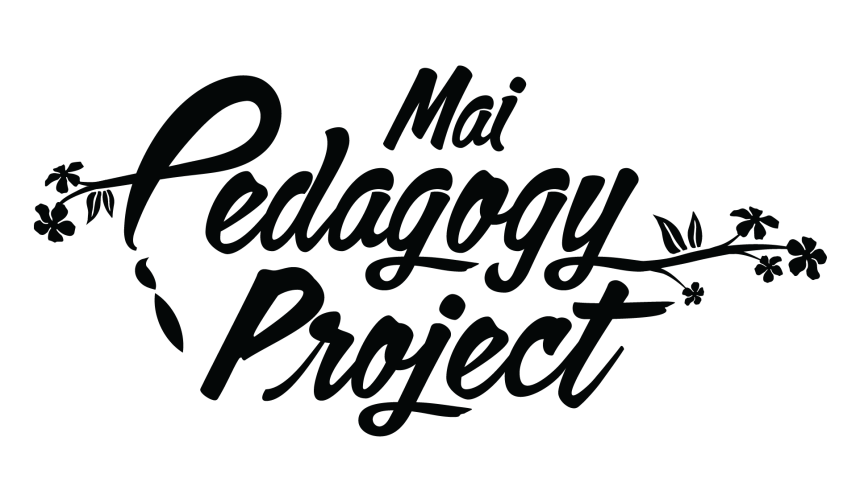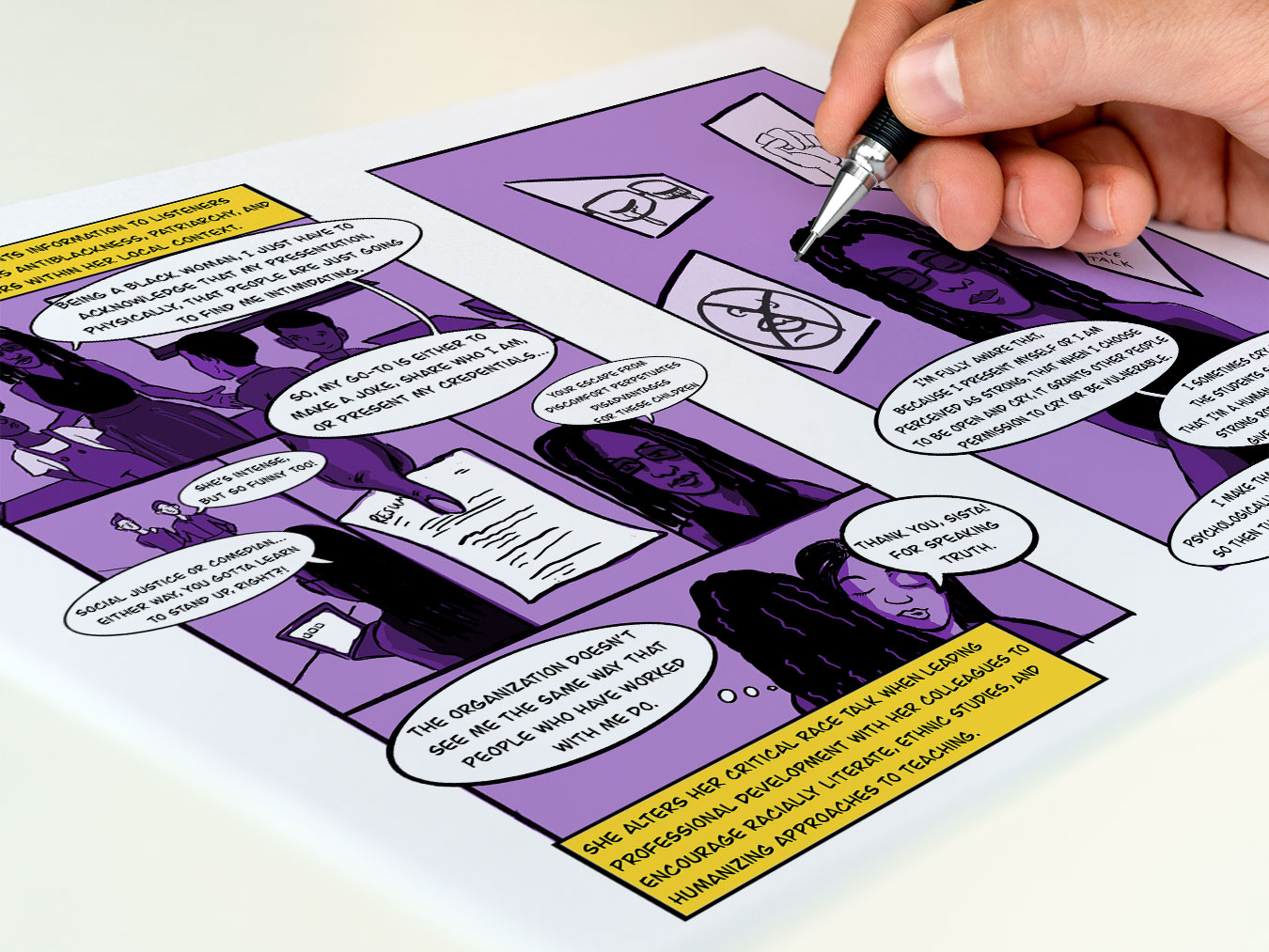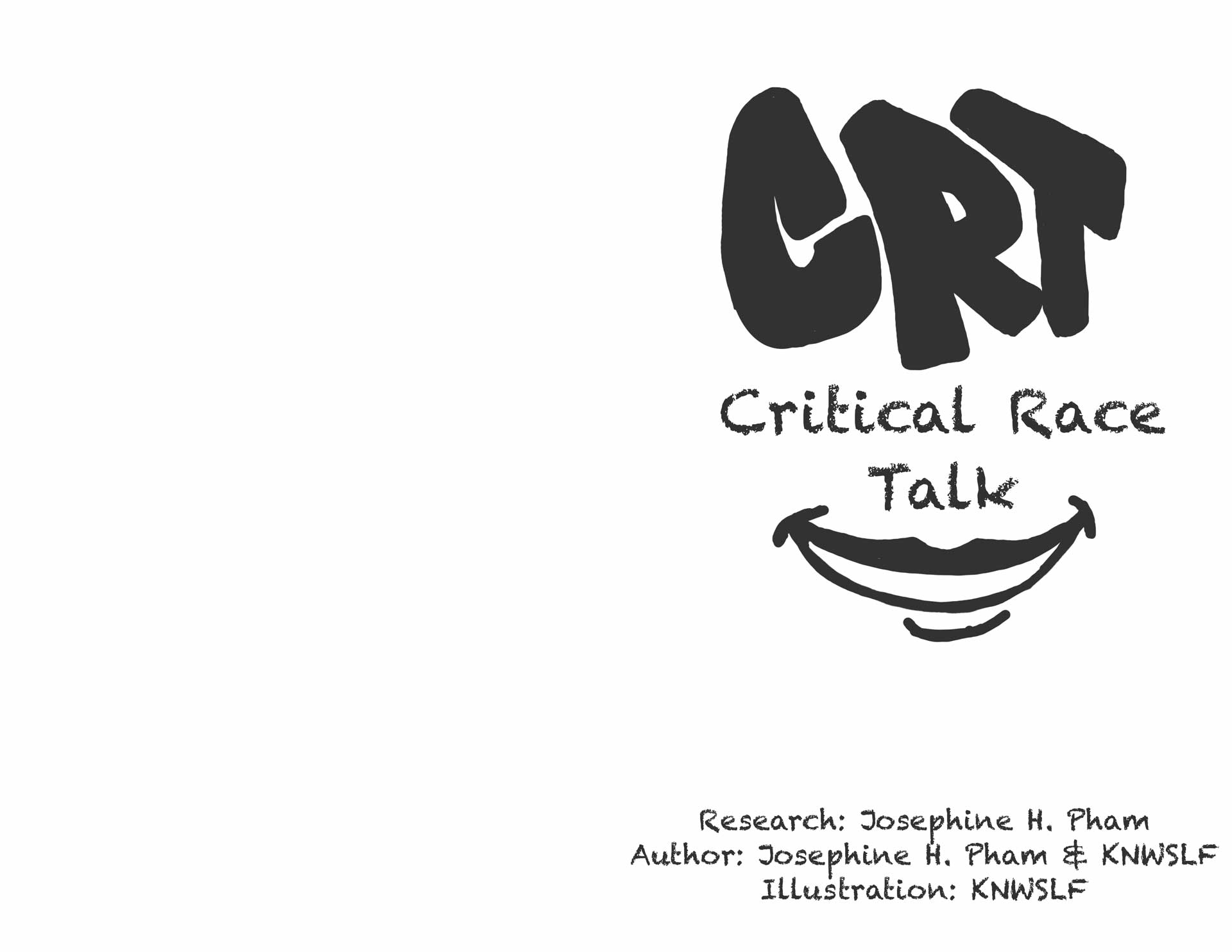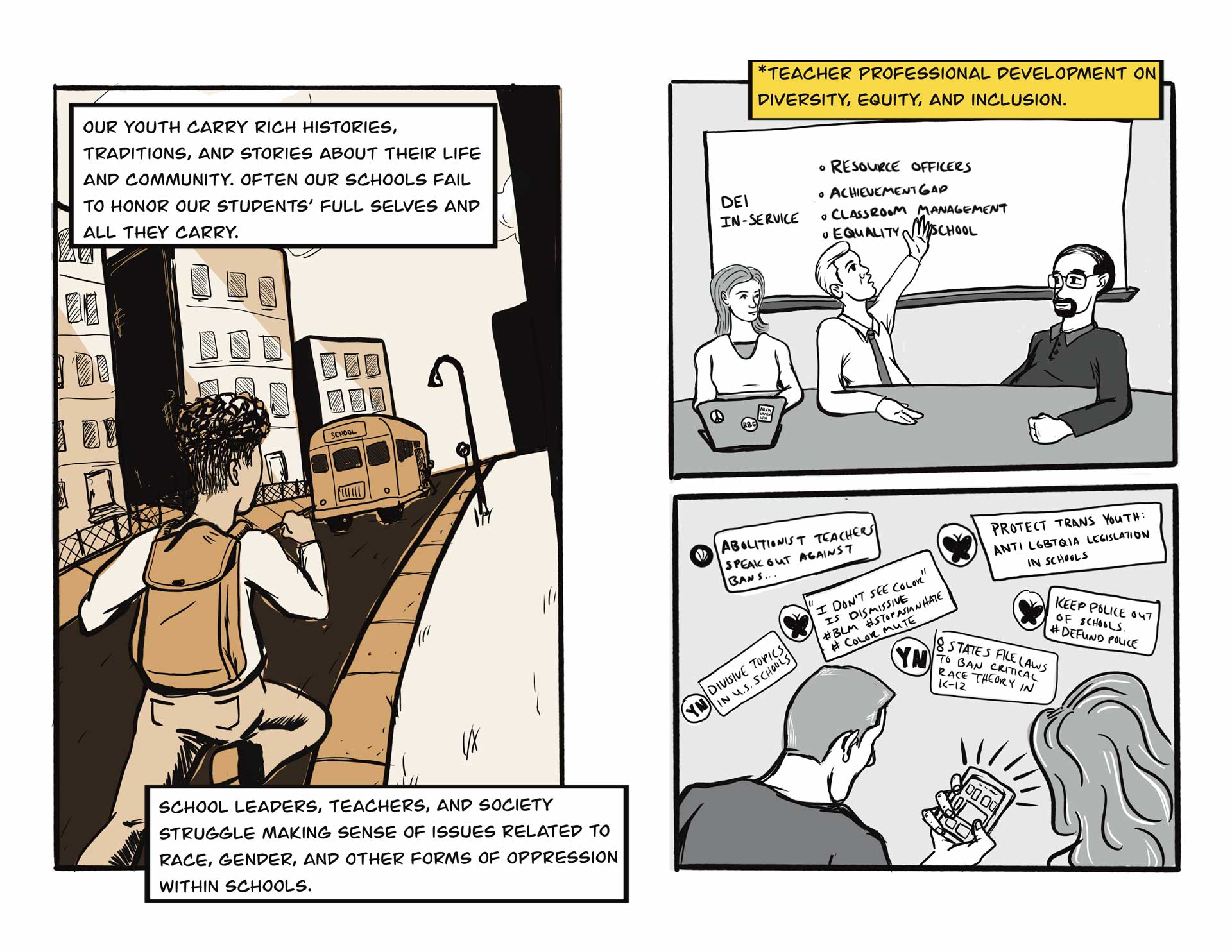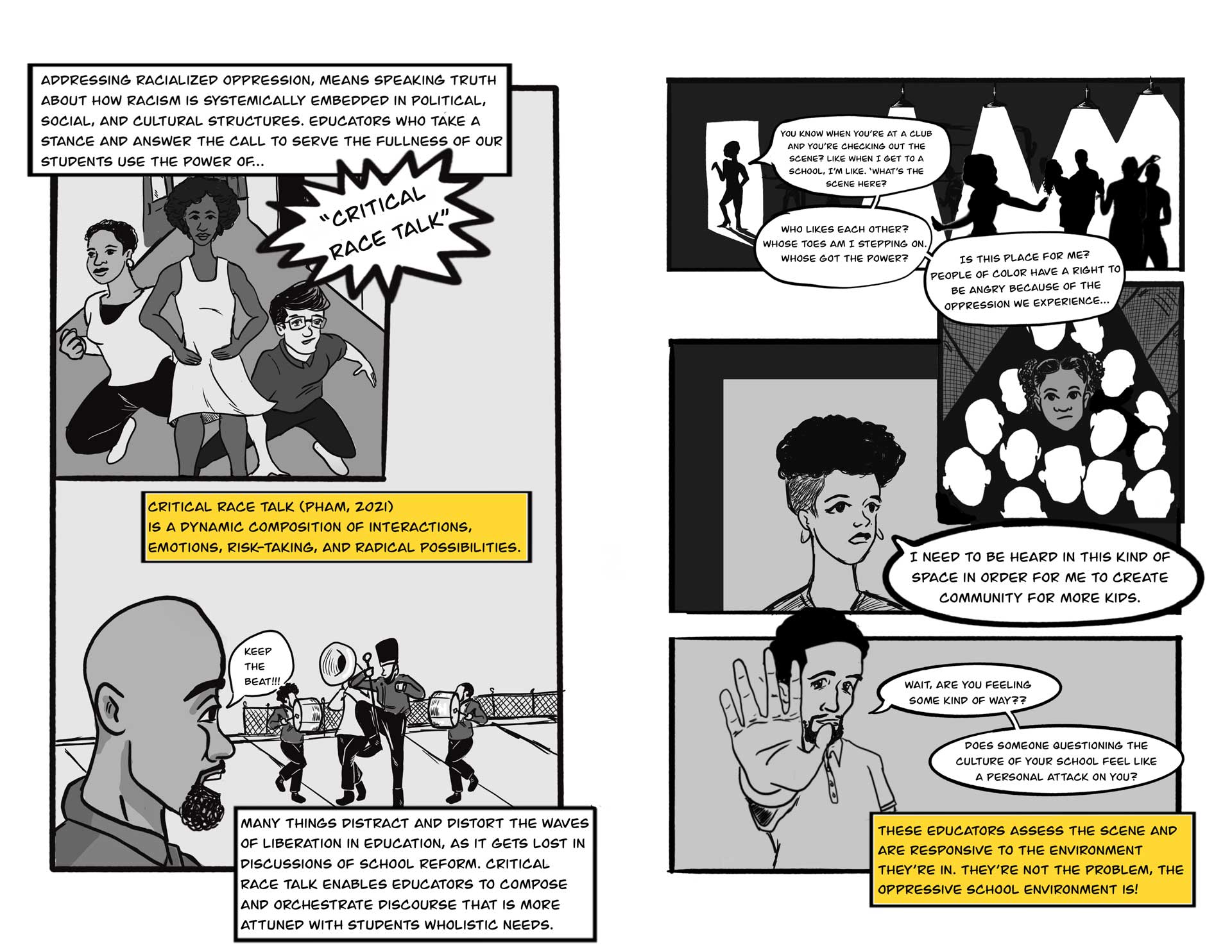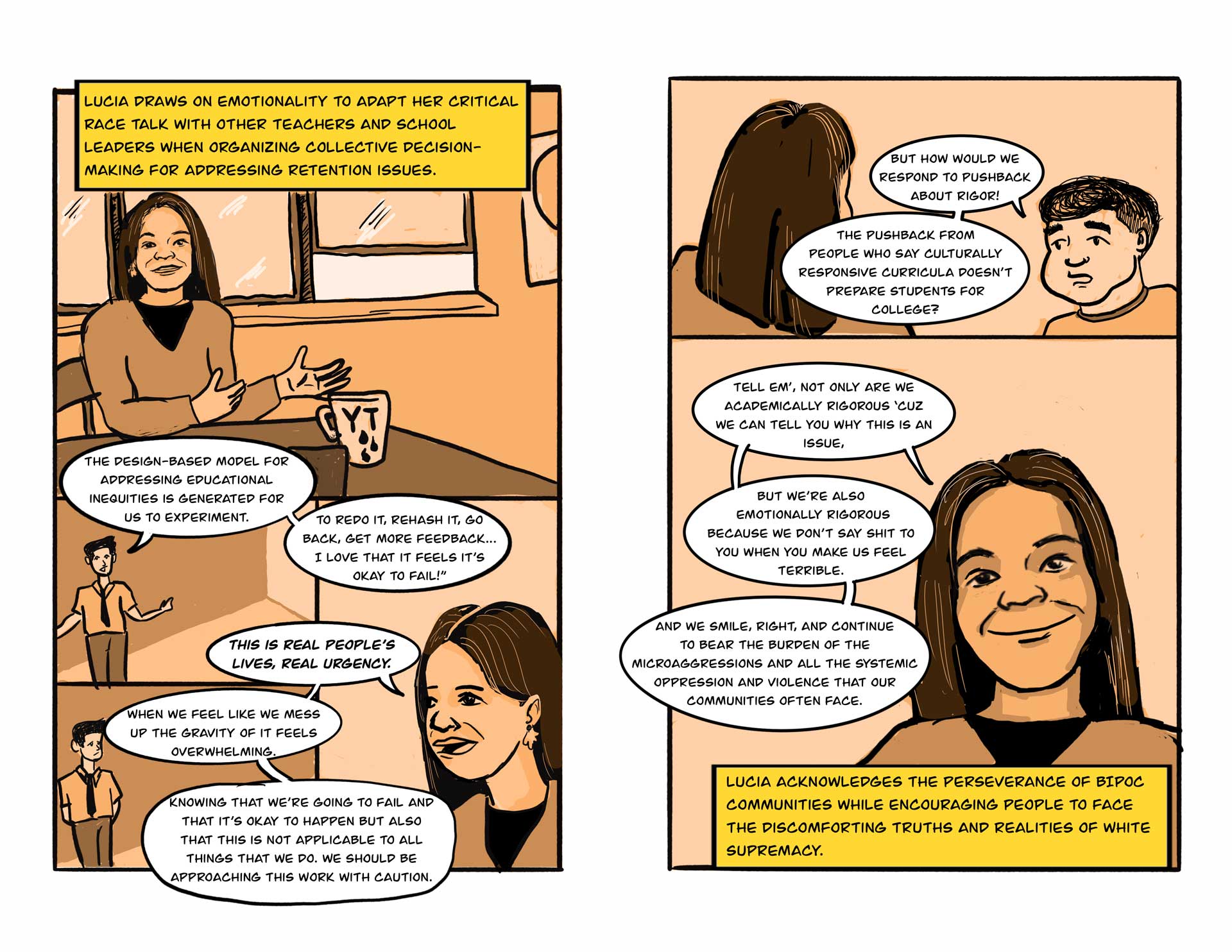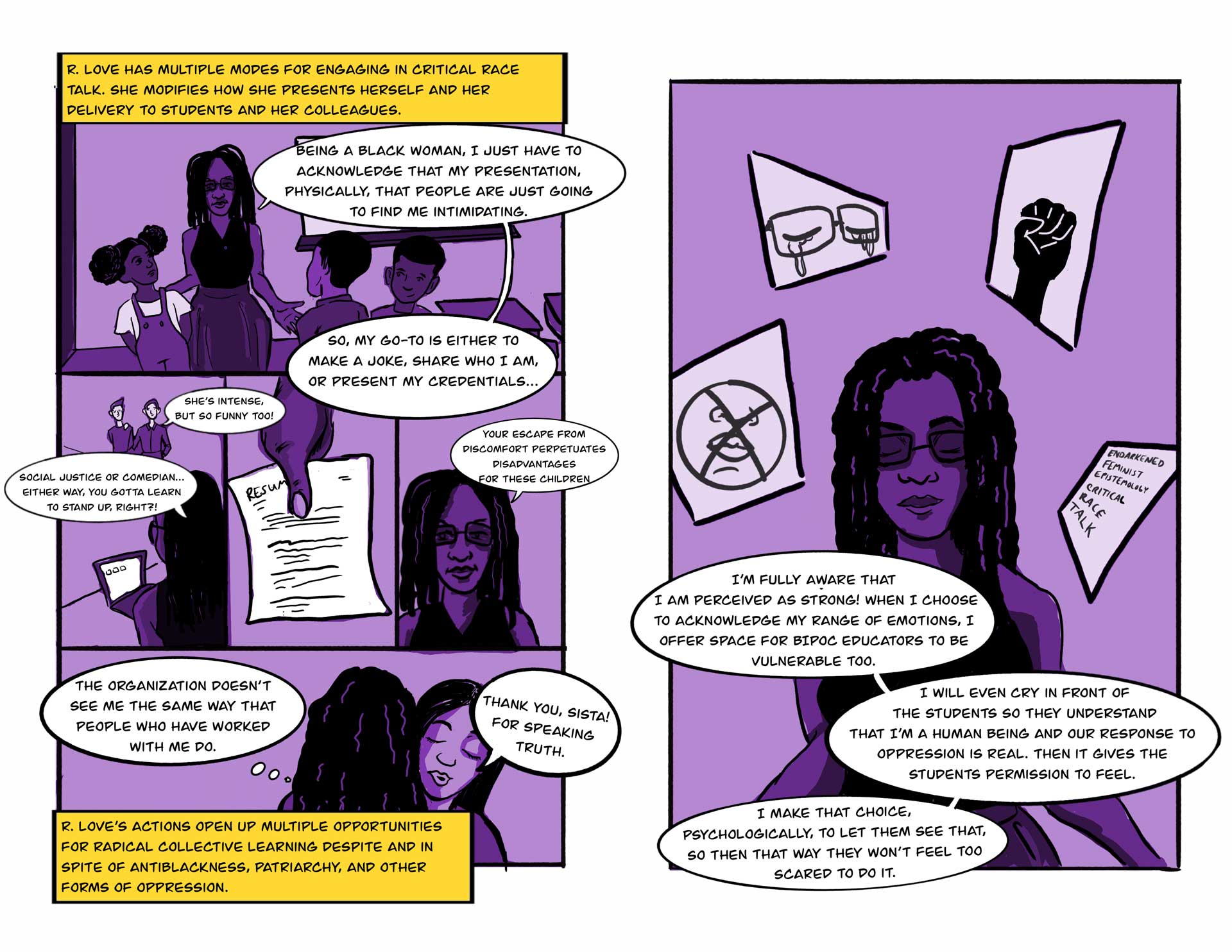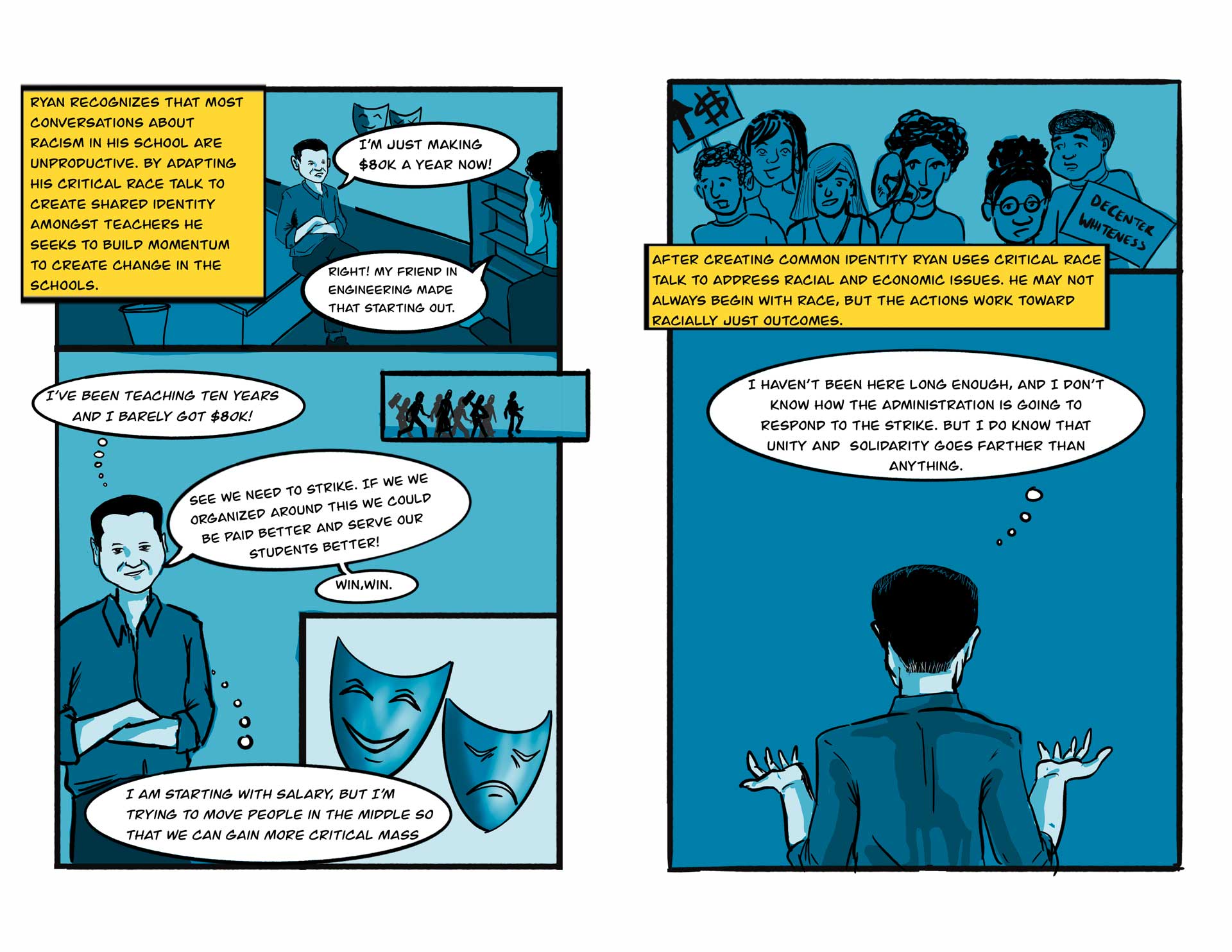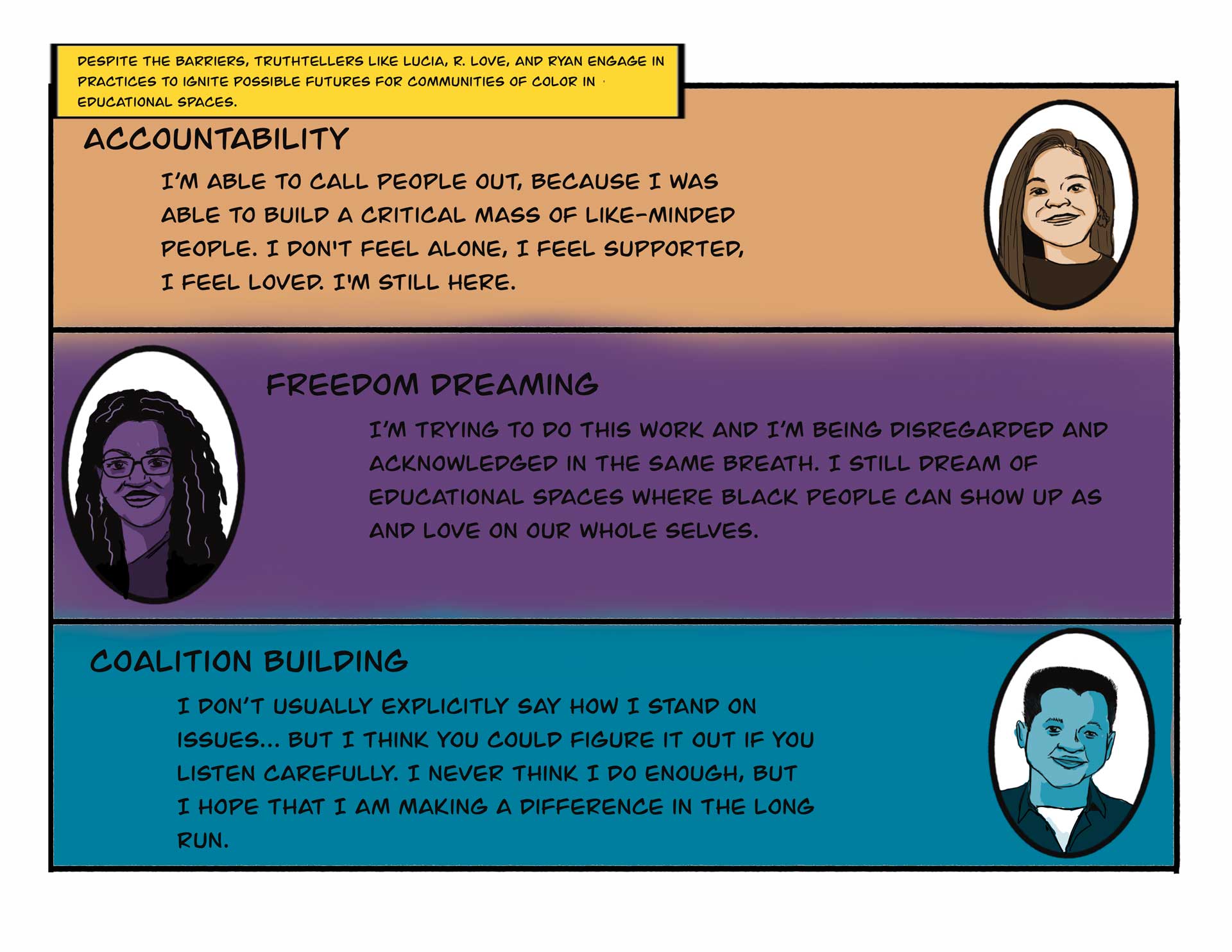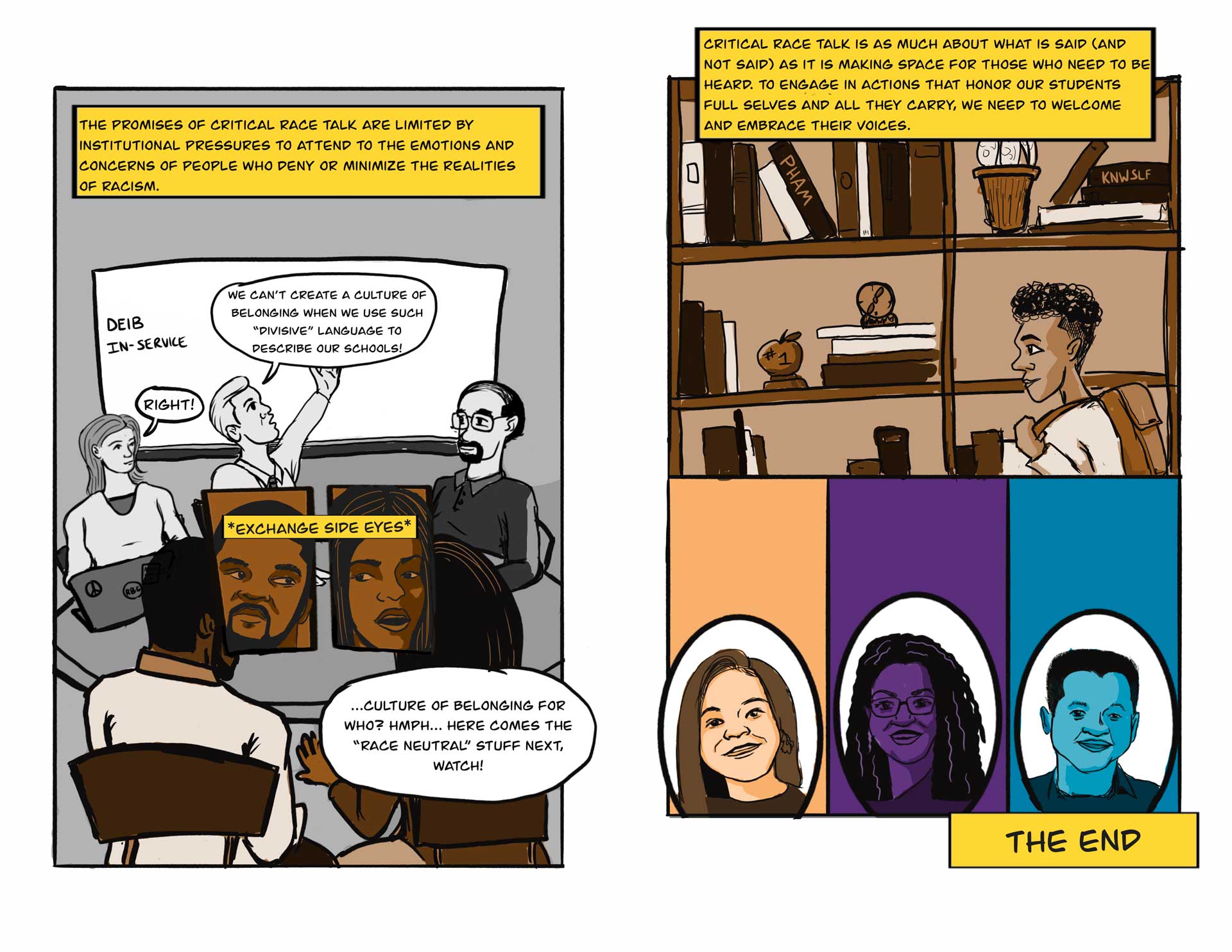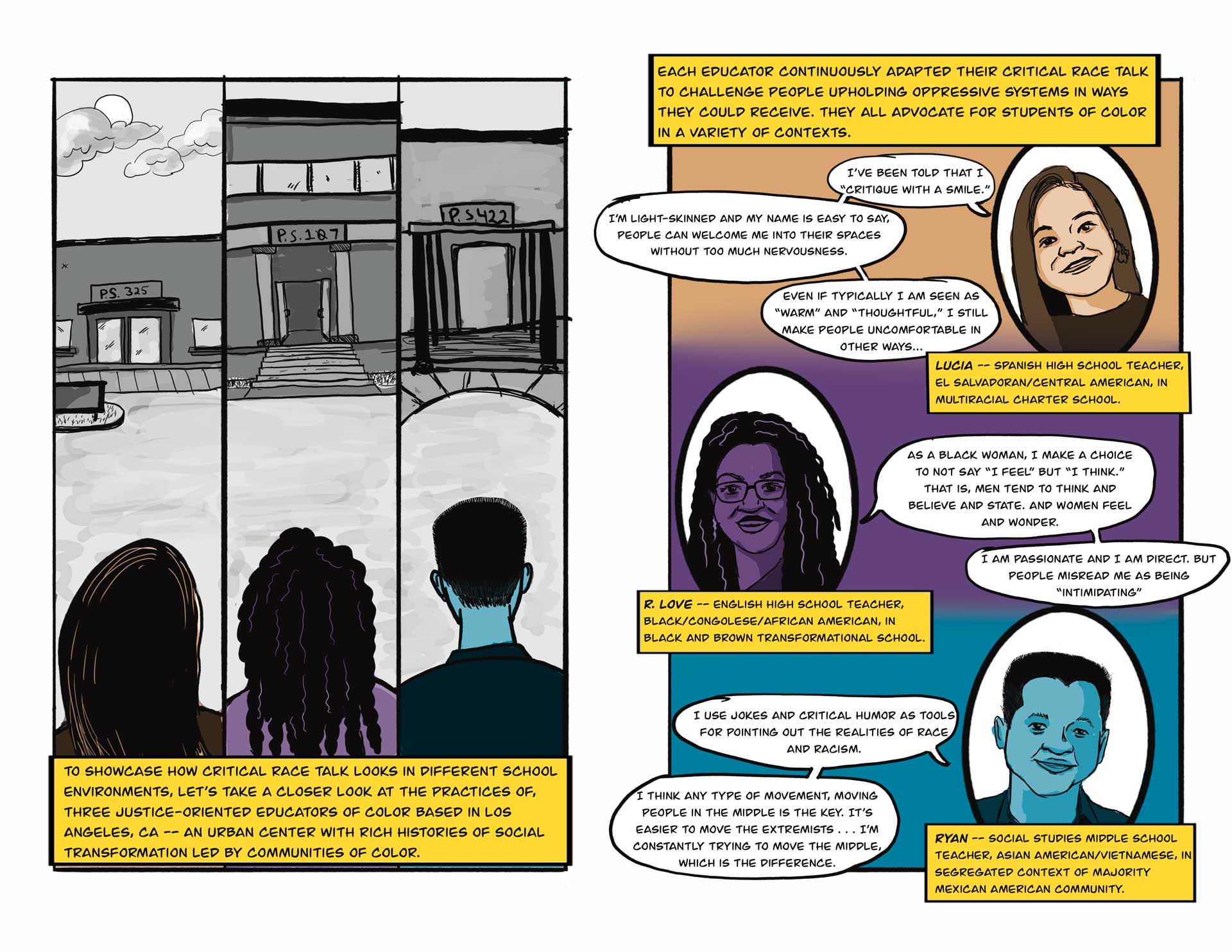Engaging in Race-Based Discourse to Advance Democratic Education
How race is talked about (or not talked about) matters for decision-making processes that directly impact the lived realities of students. Critical Race Talk is a practice for engaging diverse group of listeners in discourse on root causes of structural racism and oppression to inform decision-making processes that advance educational interests and aspirations of BIPOC
Citation
Pham, J.H. & Brooks, J. (2023). Critical Race Talk. Mai Pedagogy Project. www.maipedagogyproject.com

Jordan Brooks
Jordan Brooks
Jordan Brooks is a creator and owner of KNWSLF (pronounced Know Self). His art and research explore how Black parents curate Black art within their homeplaces to influence their children’s racial/ethnic identity development. KNWSLF stands for KNowledge, Wisdom, Self Love, and Fellowship. Jordan is a doctoral student at Iowa State University in the Social and Cultural Studies of Education program and has worked in Higher Education for over 10 years.
“I think there is something powerful about the visual component of scholarly findings that seems less intimidating. We associate comics and cartoons with something lighter and you can dive into more difficult topics that can serve to ignite conversations with people. To read the comic and read the article together is an entry point to understanding complex ideas for all populations, all grade levels, and breaks the tradition of academia always needing to produce an article to explain complex things. The articles [Josephine] wrote and the ways that they were transformed into the comics really could serve people trying to look at ways to talk about power oppression, antiracism in ways that don’t default to academia or maybe getting defensive, and just talking about your feelings absent of theory. It allows us to collaborate together, and think about these ideas in ways that tell a story, and actually tell someone’s story in its full truth”
Share Your Experience
We are committed to offering our resources to educators, youth advocates, organizers, and community members at no cost. If you have used materials from Mai Pedagogy Project in any way, we would love to learn from you and your experiences to sustain our project and support our future work!
related projects

